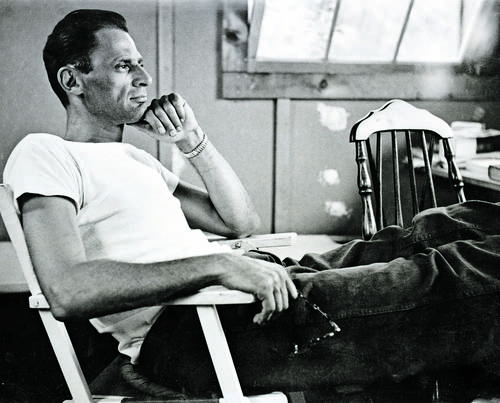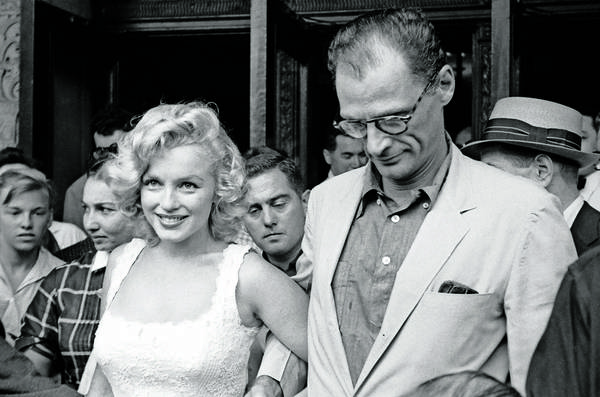

The global military-industrial complex has been humming happily along since Russia invaded Ukraine in February last year. There are no profits like war profits for arms manufacturers and industrialists, the Daddy Warbuckses of past and present.
Oliver “Daddy” Warbucks made his debut in the comic strip Little Orphan Annie in the New York Daily News on 27 September 1924. As his backstory was filled over the years, it emerged that Warbucks made his fortune during World War I. In his name lay the considerable hint about the source of his wealth.
Today’s Warbuckses are living in ultra-billionaire paradise, with not one but two wars happening at the same time: Ukraine, and Israel’s pulverising and murderous attacks on Gaza. Happy days and “O, what lovely wars!”
It is good economic news for US President Joe Biden, too, from whose lips one expects to tumble the words of his compatriot Calvin Coolidge, the 33rd president (1923-29): “The chief business of the American people is business.” In referring to World War I debts run up by England and other countries, it was also Coolidge who tartly remarked: “They hired the money, didn’t they?”
Wartime profiteering is never abstract, never removed from the death and destruction it causes. But the helpless observer of evil working and profiting is often — invariably? — overwhelmed by the bigger picture.
It’s the work of literature and the arts to create microcosms that capture the enormity of the whole and expose the bad and the good. Rarely have the intimate effects of military-industrial profiteering and its terrible consequences for people been better conveyed than in Arthur Miller’s classic play All My Sons.
Just over 17 months after World War II ended, All My Sons opened at the Coronet Theatre on Broadway on 29 January 1947. A few lukewarm and negative reviews looked to spell a shortened run but then came Brooks Atkinson’s review in The New York Times.
Atkinson judged that “… The theater [sic] has acquired a genuine new talent. [It is] an honest, forceful drama, an original play of superior quality by a playwright who knows his craft.”
A few months later, in the spring, All My Sons won the New York Drama Critics Circle award for best play of the season. In that, it won out over the great Eugene O’Neill’s brilliant The Iceman Cometh.
Miller’s career was confirmed and launched. Down the line lay Death of a Salesman, An Enemy of the People, The Crucible, A View from the Bridge, After the Fall, The Price and others, as did senator Joseph McCarthy’s red-baiting via the House Committee on Un-American Activities and Miller’s marriage to Marilyn Monroe.
In that summer of 1947, Miller could contentedly record: “I had the name now. They had to listen when I talked. And I didn’t have to write another ‘well made’ play to keep from starving.”
That bitter after-note about “well made” reflects the theatre world’s then restlessness with the structure that Miller used. In the first act there is exposition, in the second development and in the third denouement.
In ordinary terms, this means a story unfolding from beginning to middle to end. And, in the way the Greek tragedians had done millennia before, “the past coming to life in the present and creating drama”, the approach that Henrik Ibsen adopted to such illuminating effect in his universally acclaimed plays.
But enough of theatrical theoretical niceties. All My Sons begins, proceeds and ends and the following is some of what happens as it progresses.
August 1947. Sunday morning in the yard of the Keller house on the outskirts of a town in America. Joe Keller, 61, is sitting in the sun reading the “Want” advertisements in the Sunday paper.
His one neighbour, medical doctor Jim Bayliss (nearly 40), reads another section of the paper. Keller’s other neighbour, Frank Lubey, 32, joins them from his morning walk.
Frank notices that the garden’s slender apple tree has been reduced to a four-foot-high stump with its upper branches, still laden with fruit, collapsed on the ground next to it, a victim of the previous night’s winds.
“Larry was born in August. He’d been twenty-seven this month. And the tree blows down,” says Frank.
It emerges that Frank is working on a horoscope of Joe’s one son Larry, a US Air Force pilot who went missing over China more than three years ago, during World War II. It’s a good turn asked of Frank by Kate Keller (early 50s), Joe’s wife.
Frank maintains that the day Larry was assumed killed, 25 November, is implausible because if it was “his favourable day, then it’s completely possible he’s alive somewhere”.
Visiting the Kellers and their remaining son Chris, 32, is Ann Deever, 26, the daughter of Joe’s former senior employee Steve and “Larry’s girl”. When alone in the yard, Joe and Chris have a heated discussion about Chris’s intentions towards Ann. He will marry her, Chris reveals. Joe says: “From Mother’s point of view he [Larry] is not dead and you have no right to take his girl.” He points out Chris hasn’t seen Ann for five years, since he went off to war.

Unbeknown to Joe — and Kate — there has been a healthy correspondence between Chris and Ann, from which it’s clear she loves him, has always wanted him to approach her, and has been baffled by his reticence after Larry went missing.
In a telling later remark, Kate says, “But I’ll always love that girl. She’s one that didn’t jump into bed with somebody else as soon as it happened [killed or missing in action] with her fella.”
Chris tells his father the family business, JO Keller and Son — manufacturers of pressure cookers and washing machines, among other devices — does not inspire him and that he would abandon it if prevented from marrying Ann.
“If I have to grub for money all day long at least at evening I want it beautiful. I want a family, I want some kids, I want to build something I can give myself to. Annie is in the middle of that.”
Keller is nonplussed. “All right but — but don’t think like that. Because what the hell did I work for? That’s only for you, Chris, the whole shootin’ match is for you!”
Ann wakes, joins Kate for breakfast and then the two women walk out to the yard. Kate reprises her faith in Larry being alive. She also draws Ann out on whether she is still waiting for Larry. Ann diplomatically tries to get across that she is not.
It turns out that Jim and Lydia Bayliss own what was formerly Ann’s family home. Then, in the quietest laying of mines, Miller reveals through Ann that her father Steve is in jail and on release will probably go to live with her mother in New York. The past is coming to life.
It’s agreed by Joe, Kate, Chris and Ann that a night on the town would be good for everyone’s spirits. Chris and Ann think they can broach their marriage at dinner, as the easiest way to tell Kate.
Just as the lengthy exposition of the first act draws to a close, Miller prepares for the rapid developments of the second and the revelations of the third. Ann’s brother George, 32, a lawyer, has been visiting Steve in jail in Columbus, Ohio. He is flying in at 7pm to see Ann and the Kellers.
Kate, sensing trouble, says, “All these years he never even sent a postcard to Steve … Why, Joe? What has Steve suddenly got to tell him that he takes an airplane to see him?”
To throw in a spoiler alert and reveal in detail what happens would be criminal. With clarity and control, Miller gathers all the threads and binds them into a wartime saga of 120 hairline-cracked cylinder heads that were welded shut and sent to the air force for its P-40 planes, of a trial and sentencing of the factory owner and his right-hand man, and of how that judgment affected the people of the play.
One of those says: “I’m in business, a man is in business; … you got a process, the process don’t work you’re out of business; … they close you up, they tear up your contracts, what the hell’s it to them? … what could I do, let them take forty years, let them take my life away?”
Wartime profiteering has no ethics — never have so few stolen so much from so many.
The post Conflict over warbucks lucre appeared first on The Mail & Guardian.
Play reveals the intimate effects of military-industrial profiteering
The post Conflict over warbucks lucre appeared first on The Mail & Guardian.



